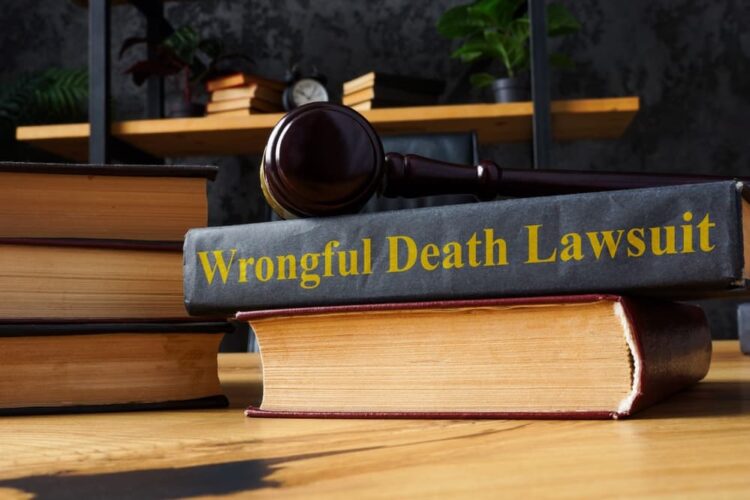
The sudden and unforeseen loss of a loved one is a devastating event that no one should have to endure. On top of the immense grief, there’s also the issue of going through what is sometimes an incredibly complicated legal process.
When a death occurs because of someone else’s negligence or misconduct, surviving family members or the representative of the decedent’s estate often can file a wrongful death lawsuit. If you are in this position, immediately consult a wrongful death attorney for a case evaluation.
Schedule a Free Initial Consultation
What Constitutes Wrongful Death?
Wrongful death happens when another party’s negligence or deliberate action causes a person’s untimely and otherwise preventable death. Wrongful death resembles a personal injury claim that involves a fatality instead of an injury.
A wrongful death may result from:
- Medical malpractice
- Car accidents, truck accidents, and motorcycle accidents
- Accidents in the workplace
- Defective products
- Criminal activities, such as assault and battery or murder
- Defective products
- Premises liability
If the decedent could have filed a personal injury claim had they lived, their surviving family may recover financially for wrongful death.
Damages in Wrongful Death Cases

In these cases, family members request damages that cover the costs of their loved one’s funeral and burial expenses and projected lost income. They may also receive compensation for losing the decedent’s guidance and companionship or any contributions the decedent provided to the household.
If a party’s negligence was notably reckless or intentional, a family may also obtain punitive damages in some cases.
Who Can File a Wrongful Death Lawsuit?
Some jurisdictions require the executor or a representative of the decedent’s estate to file a wrongful death lawsuit. Other jurisdictions allow immediate family members (such as spouses and children) to submit the claim.
If another party’s negligence led to your loved one’s death, speak to a wrongful death attorney immediately to determine who should lead the process.
Proving Wrongful Death
To win a wrongful death lawsuit, litigants must show four elements in negligence cases.
These elements include:
- Duty of care – In other words, the defendant had a duty of care to keep the decedent safe
- Breach of duty – The defendant breached this duty
- Causation – The actions of the defendant directly led to the decedent’s death
- Damages – The incident led to damages that the defendant owes the plaintiff
In these civil cases, the other party either negligently or intentionally caused the decedent’s death. Therefore, the victim may have died from either a criminal act or another party’s negligence.
Remember: A criminal prosecution and wrongful death operate in the courts independently. Even if the court does not convict a party of criminal charges, a family may still sue the defendant for wrongful death.
Types of Wrongful Death Cases
Wrongful death cases can involve different types of negligence claims or intentional conduct.
Premises Liability
Building owners must meet their duty of care by maintaining a safe place for their customers or visitors. This means performing regular inspections and fixing dangerous conditions without delay or as soon as feasible.
Posting warning signs at sites awaiting repair is necessary. Property hazards can lead to falls from heights, electrocutions, drowning, and other fatal property-related accidents.
Traffic Accidents
On the road, drivers and other parties can cause car accidents, commercial truck collisions, motorcycle or bicycle crashes, pedestrian accidents, and more. Any of these collisions can result in fatal injuries, and around 40,000 people lose their lives in traffic accidents each year in the U.S.
Worksite Accidents
If a wrongful death occurs at work, the family may receive wrongful death compensation if a third party is liable for the death. While you can’t sue the employer, you may have a case if your loved one died in a car accident at a worksite or as the result of a defective tool.
Families may also consider filing a lawsuit if the at-fault party was another contractor at a construction site.
Criminal Violence

Not all wrongful deaths are accidental and due to negligent conduct. Sometimes, wrongful death stems from violent assaults or other criminal conduct. In such cases, assailants might face manslaughter or murder charges in criminal court.
As mentioned above, these criminal cases take place separately from civil wrongful death claims, and families still must take action to seek the compensation and justice they deserve in addition to criminal penalties.
Families have the right to file wrongful death claims when a party other than the employer is responsible and liable for a death, whether accidental or intentional. A wrongful death attorney can advise whether your family has a valid case.
The Procedure and Timeline of a Wrongful Death Lawsuit
A typical wrongful death lawsuit can involve several major phases:
- Investigation: Gathering evidence necessary for fault determination and damage calculation.
- Filing the Lawsuit: Starting legal action within the statute of limitations, which varies by state.
- Discovery: Exchanging evidence and gathering information through depositions and interrogatories – between both parties.
- Pre-Trial Motions and Settlement Negotiations: Trying to settle outside of court, which may include mediation or arbitration.
- Trial: Presenting your case before a judge or jury if a settlement is not reached.
The process can take anywhere from several months to a couple of years, depending on the case’s complexity and the court’s schedule. Your attorney will handle every step, so you do not have to worry about following complex procedures or meeting deadlines.
Choosing the Right Wrongful Death Attorney
When deciding who to represent you legally, consider these attributes:
- Experience in wrongful death cases
- Clear communications with clients
- Fee structure (many work on contingency, which means they don’t get paid until they win your case)
- A high success rate in both settlements and trial verdicts
As you go through this difficult time, aligning yourself with a qualified attorney is important. Don’t go it alone. Clients who retain legal counsel are in a better position – both legally and financially. Contact a personal injury attorney about your case today.
Schedule a Free Initial Consultation Today!
}a.onsite-btn:hover {background-color:#004178;color:#ffffff; !important;transition: 0.5s;border-color: #004178;}]]>
.